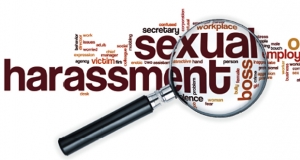Employer's Potential Liability for Third Party Harassment
The increased attention to sexual harassment in the work place is reflected in the increasing number of sexual harassment suits filed by the United States Equal Employment Opportunity Commission-a federal agency whose responsibilities include enforcing federal nondiscrimination laws.
This trend magnifies the need for employers to be aware of an opinion by a judge of the United States District Court of the Eastern District of Pennsylvania, holding that an employer may be liable for the sexual harassment of one of its employees by a nonemployee.
In this case, Hewett v. BS Transportation of Illinois, LLC, et al., the Court considered various claims by an employee, Hewitt, including a claim of sexual harassment, against his employer, BS Transportation.
Specifically, Hewitt alleged that he was a freight driver for BS Transportation whose job responsibilities included weekly loading of oil at a Sunoco refinery.
According to the allegations in Hewitt’s complaint:
During the course of Hewitt’s employment, a Sunoco employee sexually harassed Hewitt, first with sexual
comments and hand gestures and then after Hewitt asked the employee to stop, with more aggressive behavior including
physical contact. Hewitt made complaints to the Sunoco employee’s supervisor, as well as Hewitt’s supervisor at BS
Transportation who was also the owner of BS Transportation. Although Hewitt’s supervisor indicated he would
“handle the matter” with the Sunoco employee, the supervisor did not investigate the complaint nor did the Sunoco
employee’s supervisor. After a pause in his harassment of Hewitt, Sunoco’s employee again engaged in sexual
harassment of Hewitt, who again complained to Hewitt’s supervisor. Hewitt’s supervisor did not notify Sunoco of
these latest actions by the Sunoco employee. Shortly after the resumption of the harassment, Hewitt’s employment
with BS Transportation ended.
As a result of the alleged harassment described above, Hewitt filed suit in federal court alleging, among other claims, sexual discrimination by BS Transportation in violation of Title VII of the Civil Rights Act of 1964. (The Court dismissed claims against Sunoco and its employee). While dismissing certain claims against BS Transportation and its supervisor, the Court did permit the sex discrimination claim to proceed-deeming it a claim of hostile work environment. (The Court in allowing the case to proceed did not make any factual findings regarding Hewitt’s allegation. Rather the Court needed to decide at this stage whether Hewitt stated a plausible claim against his employer).
The Court noted that the claim in this case was not like most claims of employment discrimination, where the offending conduct is alleged to have been committed by an employee of the employer. This case instead involved a nonemployee. The Court, however, allowed the case to proceed based on the allegations that a management -level employee (Hewitt’s supervisor)of BS Transportation was aware of the harassment complaints and failed to investigate or take appropriate action and that BS Transportation failed to notify Sunoco when Sunoco’s employee allegedly resumed harassment of Hewitt.
Pointing to decisions of other courts, the Court in this case held that an employer may be liable for employment discrimination “where the employer (or its agents or supervisory employees) knows or should have known of the conduct and fails to take immediate and appropriate action”(quoting Johnson-Harris v. AmQuip Cranes Rental ,LLC). The Court ruled that Hewitt had alleged sufficient facts to let the matter go forward. The Court also found that Hewitt stated a claim (yet to be proven) that BS Transportation’s supervisory employee had aided or abetted an unlawful discriminatory practice under the Pennsylvania Human Relations Act.
The obvious takeaway from this decision is that an employer must have procedures in place to immediately and thoroughly investigate claims of workplace discrimination of any type. These procedures, of course, go along with anti-discrimination policies and procedures that may be used by an employee to file a complaint with the employer.
The less obvious lesson from this case is that an employer could be found liable for the unlawful conduct of a nonemployee if it fails to take appropriate action, including a thorough investigation. The reasoning of this case can easily be applied to other nonemployees who come into contact with an employer’s employees- vendors, outside maintenance personnel, salespeople, customers and so on. An employer must be alert as to any such claim that could give rise to a lawsuit.





















